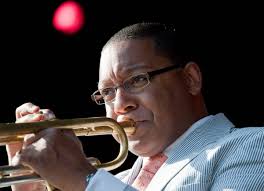Wynton Marsalis [1961-0] American    
Rank: 101
Musician, Trumpeter
Wynton Learson Marsalis is a trumpeter, composer, teacher, music educator, and artistic director of Jazz at Lincoln Center in New York City, United States. Marsalis has promoted the appreciation of classical and jazz music often to young audiences. Music, Art, Attitude, Education, Faith, Father's Day, Freedom, Independence, Time |  |